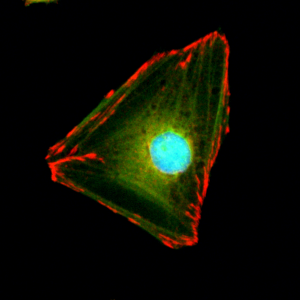Cookie preferences
This website uses cookies, which are necessary for the technical operation of the website and are always set. Other cookies, which increase the comfort when using this website, are used for direct advertising or to facilitate interaction with other websites and social networks, are only set with your consent.
Configuration
Technically required
These cookies are necessary for the basic functions of the shop.
"Allow all cookies" cookie
"Decline all cookies" cookie
CSRF token
Cookie preferences
Currency change
Customer-specific caching
FACT-Finder tracking
Individual prices
Selected shop
Session
Comfort functions
These cookies are used to make the shopping experience even more appealing, for example for the recognition of the visitor.
Note
Show the facebook fanpage in the right blod sidebar
Statistics & Tracking
Affiliate program
Conversion and usertracking via Google Tag Manager
Track device being used

| Item number | Size | Datasheet | Manual | SDS | Delivery time | Quantity | Price |
|---|---|---|---|---|---|---|---|
| REV-31-1137-00-R100 | 100 µl | - | - |
3 - 9 business days* |
483.00€
|
If you have any questions, please use our Contact Form.
You can also order by e-mail: info@biomol.com
Larger quantity required? Request bulk
You can also order by e-mail: info@biomol.com
Larger quantity required? Request bulk
Recombinant Antibody. This antibody reacts to human Paxillin. This antibody may also react to... more
Product information "Anti-Paxillin (human), Rabbit Monoclonal (RM256)"
Recombinant Antibody. This antibody reacts to human Paxillin. This antibody may also react to mouse or rat Paxillin, as predicted by immunogen homology. Applications: WB, IHC. Source: Rabbit. Liquid. 50% Glycerol/PBS with 1% BSA and 0.09% sodium azide. Paxillin is a signal transduction adaptor or scaffold protein. This class of molecule provides a structural framework to facilitate the concurrent binding of protein components in particular signalling pathways, thereby promoting efficient and sequential activation of the individual components, as well as controlling crosstalk between pathways and retaining signalling specificity. The C-terminal region of paxillin contains four LIM domains that target paxillin to focal adhesions. It is presumed through a direct association with the cytoplasmic tail of beta-integrin. The N-terminal region of paxillin is rich in protein-protein interaction sites. The proteins that bind to paxillin are diverse and include protein tyrosine kinases, such as Src and focal adhesion kinase (FAK), structural proteins, such as vinculin and actopaxin, and regulators of actin organization, such as COOL/PIX and PKL/GIT. Paxillin is tyrosine-phosphorylated by FAK and Src upon integrin engagement or growth factor stimulation, creating binding sites for the adapter protein Crk. Paxillin is expressed at focal adhesions of non-striated cells and at costameres of striated muscle cells, and it functions to adhere cells to the extracellular matrix. Paxillin has been shown to have a clinically-significant role in patients with several cancer types. Enhanced expression of paxillin has been detected in premalignant areas of hyperplasia, squamous metaplasia and goblet cell metaplasia, as well as dysplastic lesions and carcinoma in high-risk patients with lung adenocarcinoma. Mutations in PXN have been associated with enhanced tumor growth, cell proliferation and invasion in lung cancer tissues.
| Keywords: | PXN |
| Supplier: | RevMAb Biosciences |
| Supplier-Nr: | 31-1137-00 |
Properties
| Application: | WB, IHC |
| Antibody Type: | Monoclonal |
| Clone: | RM256 |
| Conjugate: | No |
| Host: | Rabbit |
| Species reactivity: | human |
| Format: | Purified |
Database Information
| KEGG ID : | K05760 | Matching products |
| UniProt ID : | P49023 | Matching products |
| Gene ID | GeneID 5829 | Matching products |
Handling & Safety
| Storage: | -20°C |
| Shipping: | +4°C (International: +4°C) |
Caution
Our products are for laboratory research use only: Not for administration to humans!
Our products are for laboratory research use only: Not for administration to humans!
Information about the product reference will follow.
more
You will get a certificate here
Viewed


